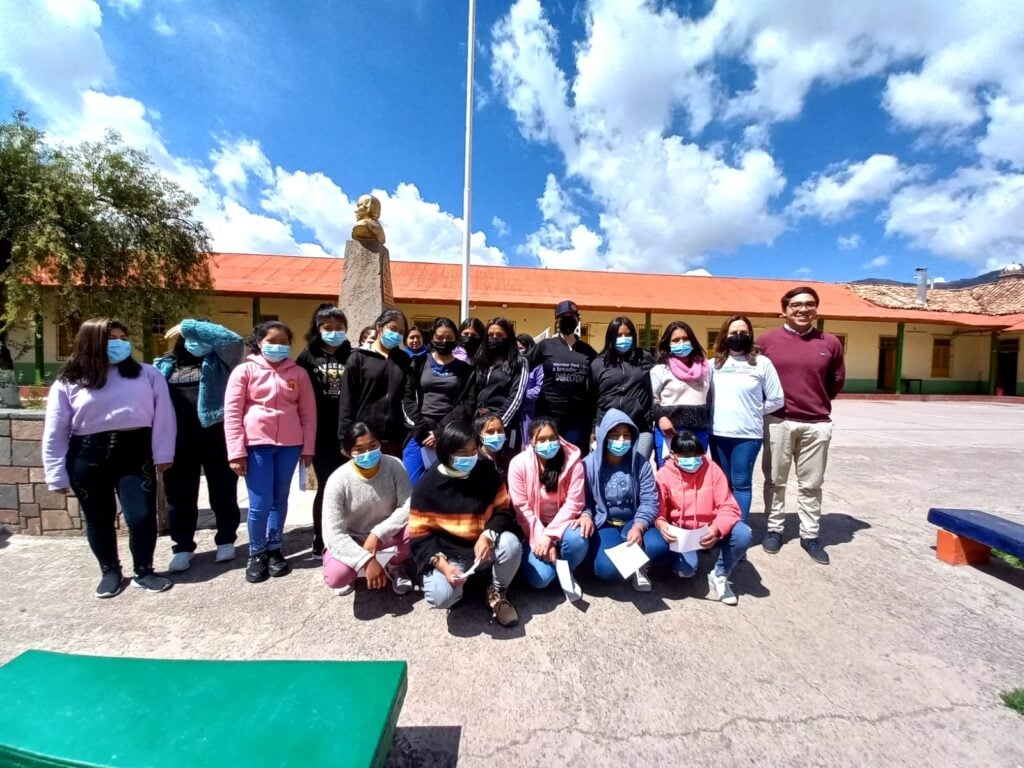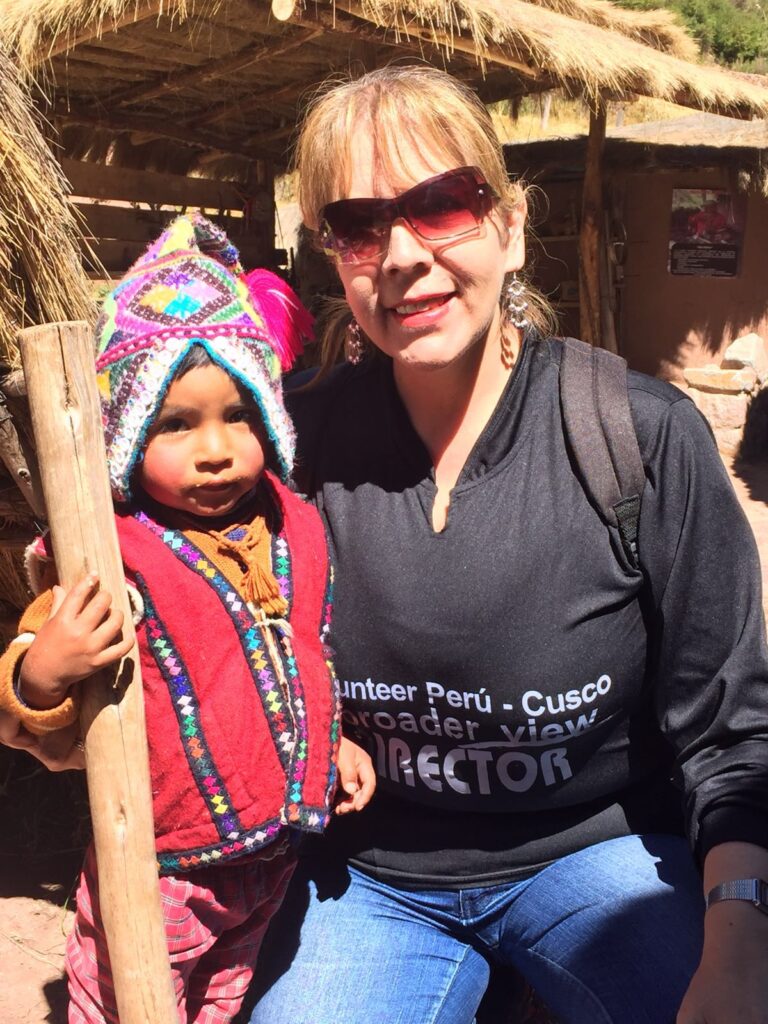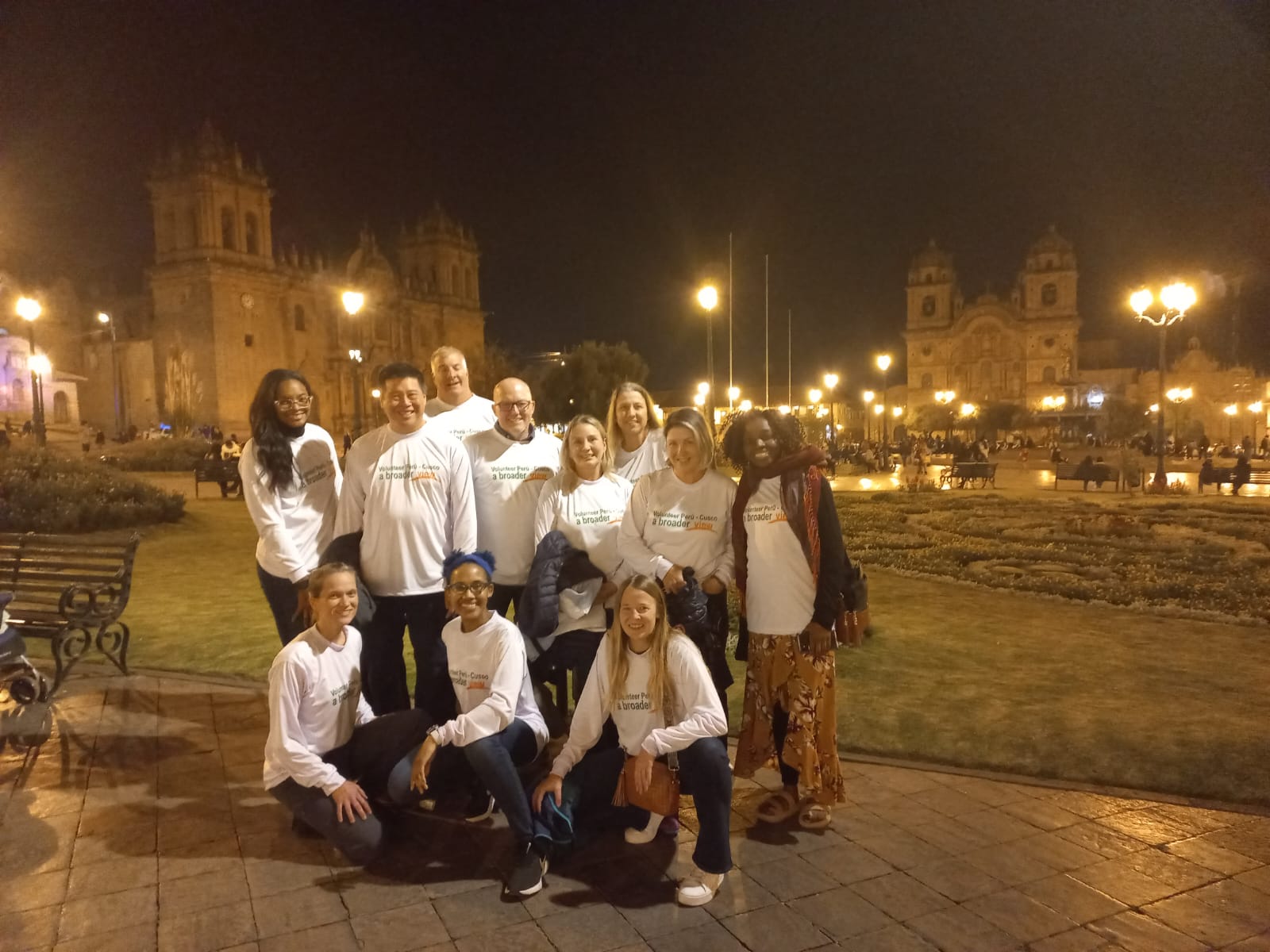Traveling is an incredible way to explore new places, immerse ourselves in different cultures, and create unforgettable experiences. However, as more and more people embark on adventures around the world, the impact of tourism on the environment and local communities has become a growing concern. This has led to the rise of sustainable travel, a movement that aims to minimize our ecological footprint and support local communities while exploring new destinations.
Sustainable travel goes beyond just being environmentally friendly. It encompasses various aspects, including reducing our carbon emissions, supporting local businesses, respecting local cultures, and engaging in activities that have a positive impact on the communities we visit. One way to incorporate sustainability into our travels is through volunteering.
In this article, we will dive into the world of sustainable travel and explore how volunteering can be a meaningful and low-impact way to explore new destinations. We’ll discuss the importance of sustainable travel, how to research volunteer opportunities, how to prepare for a sustainable volunteer experience, the various types of sustainable volunteer activities, and how to maximize our positive impact while minimizing our ecological footprint.
If you’re passionate about making a difference while traveling and want to explore volunteer opportunities that align with your values, keep reading. Together, we can make a positive impact on the places we visit and leave a minimal footprint behind. So, let’s start our sustainable travel journey!

Understanding Sustainable Travel
Sustainable travel is a concept that is gaining popularity as people become more aware of the impact of their actions on the environment and local communities. It involves making conscious choices that reduce our carbon footprint and minimize negative impacts, while also supporting and benefiting local communities. In this section, we will explore the importance of sustainable travel and how it can be achieved.
The Importance of Sustainable Travel
Sustainable travel is important for several reasons:
- Environmental Conservation: By minimizing our environmental impact, we can help preserve the natural beauty of the destinations we visit. This includes reducing our carbon emissions, conserving water and energy, and properly disposing of waste.
- Preservation of Cultural Heritage: Sustainable travel involves respecting and appreciating the local cultures and traditions of the communities we visit. By doing so, we can help preserve their cultural heritage and promote intercultural understanding.
- Support for Local Communities: Sustainable travel seeks to benefit local communities by supporting local businesses, contributing to local economies, and empowering local people. This can be through volunteering, purchasing locally-made products, or engaging in community-based tourism initiatives.
Reducing Environmental Impact
To reduce our environmental impact while traveling, we can take the following steps:
- Choose eco-friendly transportation: Opt for public transportation, cycling, or walking whenever possible. If you need to use a car, consider carpooling or renting a hybrid or electric vehicle.
- Conserve energy and water: Be mindful of your energy and water consumption. Turn off lights and air conditioning when not in use, take shorter showers, and reuse towels.
- Minimize waste: Avoid single-use plastics by carrying a reusable water bottle, shopping bag, and utensils. Properly dispose of waste in designated recycling and compost bins.
Supporting Local Communities
When traveling sustainably, it is important to support local communities in the following ways:
- Stay in locally-owned accommodations: Opt for locally-owned hotels, guesthouses, and homestays, rather than large international chains. This ensures that more of your money goes directly to the local economy.
- Eat local: Choose to eat at locally-owned restaurants and street food stalls, where you can try traditional dishes made from locally-sourced ingredients. This supports local farmers and food producers.
- Engage in community-based tourism: Participate in activities that are organized and run by local communities, such as guided tours, workshops, and cultural performances. This provides a direct source of income for local people.
Choosing Ethical Volunteer Organizations
Volunteering can be a great way to make a positive impact while traveling. However, it is important to choose ethical volunteer organizations that prioritize sustainability and community empowerment. Here are some tips for choosing the right volunteer organization:
- Research their mission and values: Look for organizations that focus on sustainable development, community involvement, and environmental conservation.
- Evaluate their projects: Ensure that the organization’s projects align with your values and interests. Consider their impact on the local community and environment.
- Assess their volunteer support: Check if the organization provides proper support and guidance to volunteers, including pre-departure training, on-site orientation, and ongoing supervision.
By understanding the importance of sustainable travel and making conscious choices, we can have a positive impact on the environment and local communities. So, let’s embark on our sustainable travel journey and make a difference!
Researching Volunteer Opportunities
As you embark on your journey to travel sustainably and make a positive impact on the world, it’s crucial to research volunteer opportunities that align with your values and minimize your footprint. By choosing the right volunteer programs and projects, you can contribute to environmental conservation, support local communities, and ensure ethical practices. In this section, we will explore the key steps you should take when researching volunteer opportunities.
Identifying Your Skills and Interests
Before diving into the research process, it’s important to identify your skills, interests, and passion areas. Ask yourself what causes you are most passionate about and what skills you can bring to the table. This will help you narrow down your options and find volunteer opportunities that truly resonate with you. Whether you have expertise in environmental conservation, community development, education, or healthcare, there are various volunteer programs out there that can benefit from your unique skills.
Researching Volunteer Programs and Projects
Once you have a clear understanding of your skills and interests, it’s time to start researching volunteer programs and projects. Here are some steps you can take during this process:
- Do thorough online research: Use search engines, volunteer organization websites, and social media platforms to explore different volunteer opportunities. Read reviews, testimonials, and success stories to gain insights into previous volunteers’ experiences.
- Contact volunteer organizations: Reach out to volunteer organizations directly to gather more information about their programs, projects, and application processes. Ask about their sustainability initiatives and how they engage with local communities.
- Connect with previous volunteers: Join online forums, discussion groups, or social media communities where previous volunteers share their experiences. Engage with them, ask questions, and learn from their firsthand knowledge.

Evaluating Environmental and Community Impact
While conducting your research, it’s essential to evaluate the environmental and community impact of the volunteer programs and projects you come across. Consider the following factors:
- Environmental impact: Look for programs that prioritize eco-friendly practices and contribute to environmental conservation. Check if they have measurable goals and strategies in place to minimize their carbon footprint and protect natural resources.
- Community impact: Assess how the volunteer programs support local communities and foster sustainable development. Look for projects that empower local people, promote education and skills development, and prioritize social and economic sustainability.
Considering Accommodation and Transportation
When researching volunteer opportunities, consider the logistics of accommodation and transportation. Look for programs that prioritize sustainable accommodation options and minimize unnecessary travel. Consider the following:
- Accommodation: Seek out volunteer programs that support eco-friendly accommodations such as eco-lodges, homestays, or community-based tourism initiatives. These options often have a smaller environmental footprint and offer authentic cultural experiences.
- Transportation: Check if the volunteer programs encourage sustainable transportation options such as walking, cycling, or the use of public transportation. Avoid programs that involve excessive air travel or long-distance road travel unless it is essential.
By following these steps during your research process, you can ensure that you choose volunteer opportunities that align with your values and have a minimal environmental and community impact. Remember that it’s crucial to dig deeper, ask questions, and verify the credibility of the volunteer organizations you come across. With careful research, you can find meaningful ways to contribute to sustainable travel and create a positive change in the world.
Preparing for a Sustainable Volunteer Experience
Embarking on a sustainable volunteer experience can be a rewarding and fulfilling adventure. Not only do you get the chance to make a positive impact on the environment and local communities, but it also allows you to immerse yourself in different cultures and gain valuable life experiences. However, like any journey, it requires some preparation. Here are some essential steps to help you prepare for a sustainable volunteer experience:
-
Learning the Local Language and Customs
- Before setting off on your volunteer trip, take the time to learn a few key phrases in the local language. This not only shows respect for the local culture but also helps you communicate with the community you’ll be working with.
- Familiarize yourself with the customs and traditions of the destination. Understanding and respecting local customs will help you integrate better and build stronger relationships with the locals.
-
Packing Light and Sustainable
- When it comes to packing, remember that less is more. Pack light and only bring essentials to minimize your ecological footprint and make it easier to move around during your volunteer work.
- Opt for sustainable and eco-friendly travel gear and accessories. Consider investing in reusable water bottles, eco-friendly toiletries, and ethically made clothing and footwear.
- Pack clothing that is culturally appropriate for your destination. Research the local dress code and ensure you respect it during your stay.
-
Understanding Local Conservation and Community Efforts
- Take the time to research the local conservation and community initiatives that exist in the area you’ll be volunteering in. Understanding their efforts will enable you to contribute more effectively and align your actions with their goals.
- Familiarize yourself with the local flora and fauna, as well as any environmental challenges the region may be facing. This knowledge will allow you to make more informed choices and be a better advocate for the environment.
-
Obtaining Necessary Travel Documents and Insurance
- Ensure that you have all the necessary travel documents for your volunteer destination, including a valid passport, visa (if required), and any other permits or identification needed.
- It is essential to have travel insurance that covers medical emergencies, trip cancellations, and any other unforeseen circumstances. Check if your insurance policy aligns with sustainable travel principles and supports responsible tourism practices.
By following these steps and properly preparing for your sustainable volunteer experience, you will be well-equipped to make a positive impact while minimizing your environmental footprint. Remember, the key to a successful volunteer journey lies in proper planning and an open mindset.
In the next section, we will explore the different types of sustainable volunteer activities you can engage in during your journey.
Engaging in Sustainable Volunteer Activities
When it comes to sustainable travel, there are numerous opportunities to get involved in volunteer activities that have a positive impact on local communities and the environment. Engaging in sustainable volunteer activities not only allows you to explore new places and cultures, but also gives you the chance to make a difference and contribute to a more sustainable world. Whether you’re passionate about conservation, community development, sustainable agriculture, or wildlife rehabilitation, there are plenty of ways to get involved and contribute to a better future.
Here are some engaging sustainable volunteer activities that you can consider:
Conservation and Environmental Projects
- Participate in reforestation projects to restore natural habitats and combat deforestation.
- Get involved in beach clean-up initiatives to remove plastic and other waste materials from coastal areas.
- Assist in wildlife monitoring and research programs to protect endangered species and promote biodiversity.
- Support initiatives focused on sustainable resource management, such as water conservation and sustainable energy practices.
Community Development and Education Initiatives
- Teach English or other subjects to local students and help improve access to education.
- Assist in building homes and infrastructure in underserved communities.
- Get involved in initiatives that promote sustainable tourism and educate visitors about the local culture and environment.
- Support community-led projects that empower local individuals and groups to create sustainable livelihoods.
Supporting Sustainable Agriculture and Farming
- Volunteer on organic farms and learn about sustainable agricultural practices.
- Assist in community gardens that provide fresh produce to local residents.
- Support initiatives promoting permaculture, agroforestry, and regenerative farming techniques.
- Participate in educational programs that teach local farmers about sustainable farming methods and help them implement these practices.
Wildlife Rehabilitation and Conservation Efforts
- Volunteer at wildlife rescue centers and sanctuaries to help care for injured or orphaned animals.
- Assist in research and data collection on endangered species and their habitats.
- Get involved in initiatives that promote responsible tourism and raise awareness about wildlife conservation.
- Support organizations that work to protect marine life and coral reefs through research and monitoring initiatives.
Engaging in these sustainable volunteer activities offers the opportunity to not only contribute positively to the environment and local communities but also to learn and grow personally. It allows you to deepen your understanding of global issues, develop new skills, and build connections with like-minded individuals from around the world. Remember to choose reputable volunteer organizations that align with your values and prioritize sustainable practices.
Sustainable travel is an incredible way to explore the world while making a positive impact. By engaging in sustainable volunteer activities, you can actively contribute to environmental preservation, support local communities, and promote a more sustainable future for all. So, whether you’re passionate about conservation, community development, sustainable agriculture, or wildlife rehabilitation, there are endless opportunities to get involved and make a difference.
Maximizing Positive Impact and Minimizing Footprint
When engaging in sustainable volunteer activities, it’s important to focus on maximizing your positive impact while minimizing your environmental footprint. By being conscious of your actions and making mindful choices, you can contribute to the sustainability of the community and environment you’re volunteering in. Here are some tips to help you achieve that goal:
- Responsible Waste Management: Proper waste management is crucial to minimizing your environmental impact. Be sure to follow the waste disposal guidelines provided by the volunteer organization or local authorities. Separate your waste into recyclables, compostables, and non-recyclables. If recycling or composting facilities are not available, try to minimize your waste generation by opting for reusable alternatives and avoiding single-use items.
- Promoting Sustainable Practices: Lead by example and encourage sustainable practices among locals and fellow volunteers. Promote the use of reusable bags, water bottles, and utensils. Advocate for energy conservation by turning off lights and appliances when not in use. This can help reduce the overall carbon footprint of the community and inspire others to adopt sustainable habits.
- Respecting Local Cultures and Traditions: Understanding and respecting the local cultures and traditions is essential when volunteering abroad. Take the time to learn about the customs and norms of the community you’re visiting. Dress appropriately and be mindful of your behavior to avoid any unintentional offense. Respecting local cultures fosters positive relationships and ensures your actions align with the community’s values.
- Supporting Local Economies: One of the key aspects of sustainable travel is supporting the local economy. Choose volunteer opportunities that prioritize local hiring practices and contribute to the economic growth of the community. Additionally, consider purchasing locally made products and supporting small businesses. By spending your money locally, you can help create a sustainable economic impact that benefits the community in the long term.
Remember, the key to maximizing positive impact and minimizing your footprint is to be mindful and proactive in your actions. Think critically about the choices you make, and always strive to align them with the principles of sustainability. By doing so, you can ensure that your volunteer experience has a lasting and positive effect on the community and environment you’re serving.
Conclusion
In conclusion, sustainable travel is not only about exploring new destinations, but also about making a positive impact on the environment and local communities. By choosing to volunteer with organizations that prioritize sustainability, you can engage in meaningful activities that contribute to conservation efforts, community development, and more.
Throughout this article, we’ve discussed the importance of sustainable travel and the various ways in which you can reduce your environmental footprint and support local communities. By researching volunteer opportunities, preparing adequately, and engaging in sustainable activities, you can make a significant difference while enjoying a memorable and fulfilling travel experience.
Remember, sustainable travel is a journey, and it’s essential to continuously educate yourself and adapt your habits to minimize your impact further. By practicing responsible waste management, promoting sustainable practices, respecting local cultures, and supporting local economies, you’re contributing to a more sustainable future.
So, whether you’re interested in conservation projects, community development initiatives, sustainable agriculture, or wildlife rehabilitation, there are plenty of opportunities available for you to get involved. Take the time to research and choose an organization that aligns with your values and interests.
By combining your passion for travel with a commitment to sustainability, you can create lasting memories while leaving a positive impact on the world. So, pack your bags, explore new horizons, and embark on an adventure that not only satisfies your wanderlust but also makes a difference in the lives of others.
Travel sustainably, make a difference, and enjoy the journey!

Frequently Asked Questions
- What is sustainable travel?
Sustainable travel refers to travel practices that aim to minimize negative impacts on the environment, support local communities, and promote cultural and ecological conservation.
- What are the benefits of sustainable travel?
Sustainable travel allows travelers to make a positive impact on the destinations they visit, conserve natural resources, preserve cultural heritage, support local economies, and foster social and environmental responsibility.
- What are volunteer opportunities in sustainable travel?
Volunteer opportunities in sustainable travel include participating in conservation projects, working with local communities on initiatives such as reforestation and waste management, and supporting wildlife conservation efforts.
- How can I find volunteer opportunities in sustainable travel?
You can find volunteer opportunities in sustainable travel by researching reputable organizations that specialize in sustainable tourism. Websites and platforms like Volunteer World, Go Overseas, and WWOOF offer extensive listings.
- What should I consider before volunteering in sustainable travel?
Before volunteering in sustainable travel, consider the organization’s credibility, their approach to sustainability, the specific projects they offer, the costs involved, and the impact you will make. It’s also important to assess your skills, interests, and the time commitment required.
-
Safe Solo Volunteering Abroad | Empowerment FemalesThrough Service with ABV

Embrace the adventure of a lifetime with ABV’s supported solo volunteering programs. Create lasting friendships, make a real difference, and explore the world safely under a supportive umbrella. Recommend Peru, Ecuador, Colombia, and more. Table of Contents Introduction to ABV and Solo Volunteering Traveling solo can be a thrilling yet daunting endeavor. A Broad View…
-
Empowerment Through Sustainable programs: Volunteer Opportunities in Peru Cusco

Discover empowering volunteer opportunities in Peru Cusco with www.abroaderview.org. Support sustainable programs and make a positive impact while gaining valuable experiences.
-
Midwives & Obstetricians: Empower Mothers & Babies Abroad

Discover how midwives and obstetricians from abroad can empower mothers and babies through the programs offered by www.abroaderview.org. Make a difference today.



